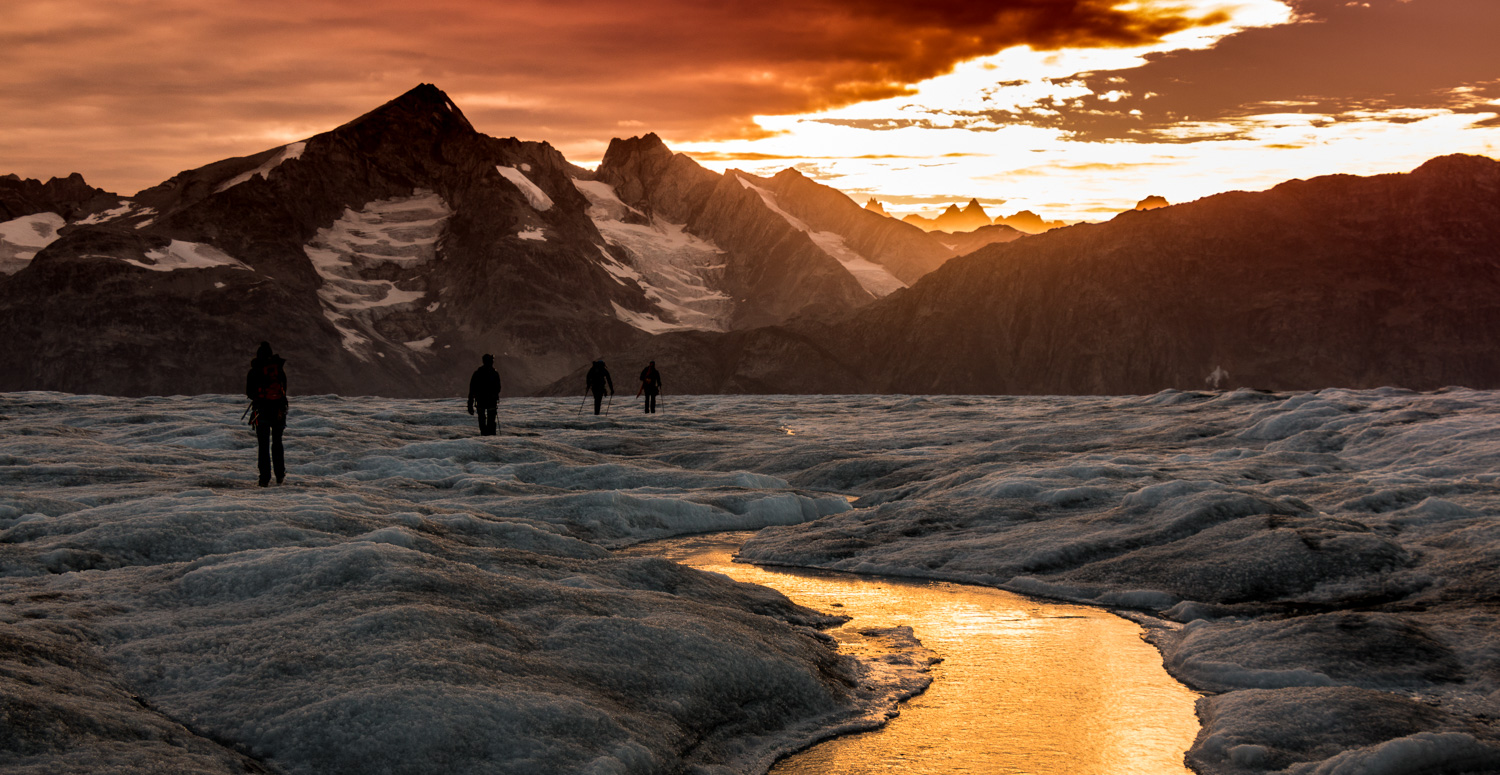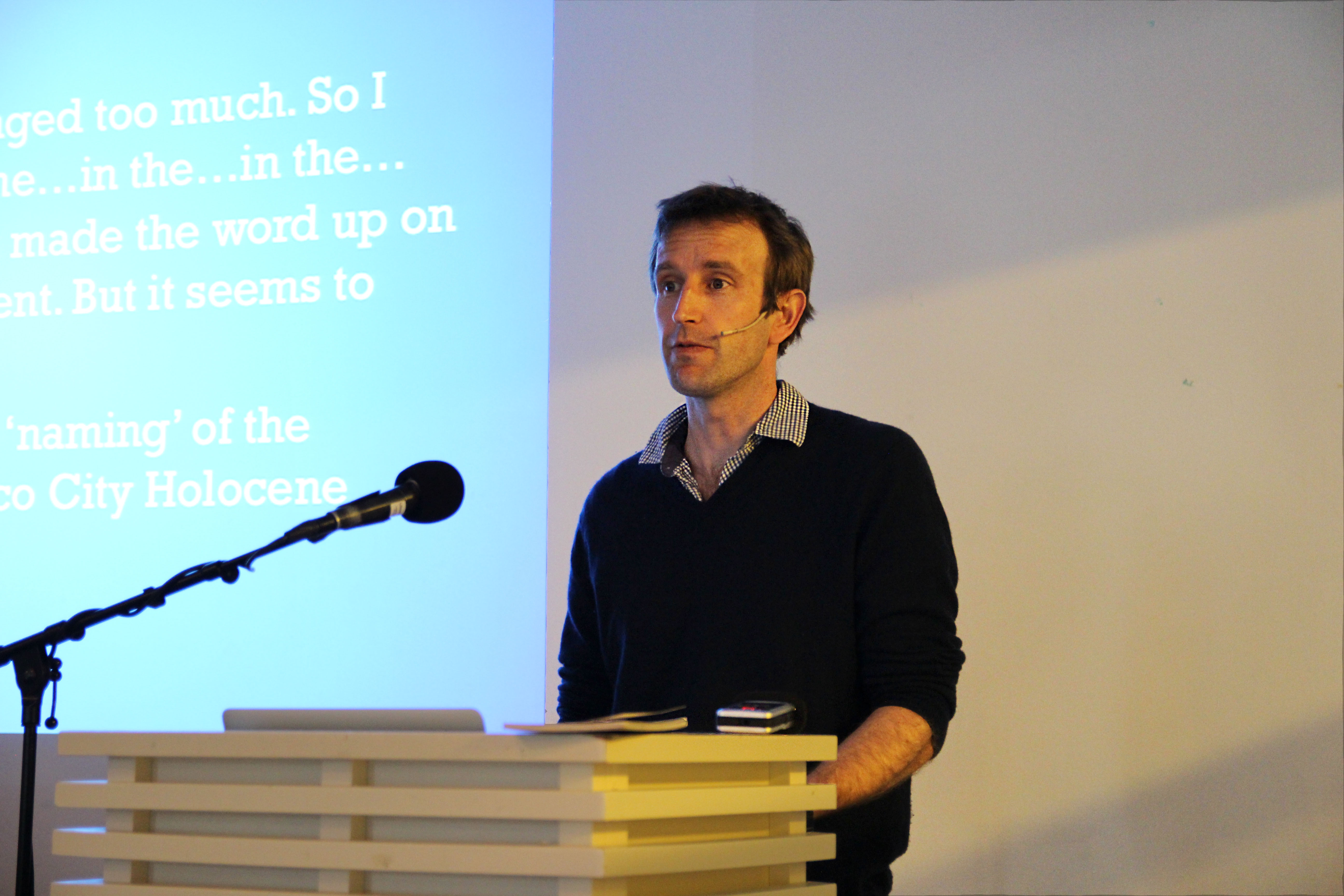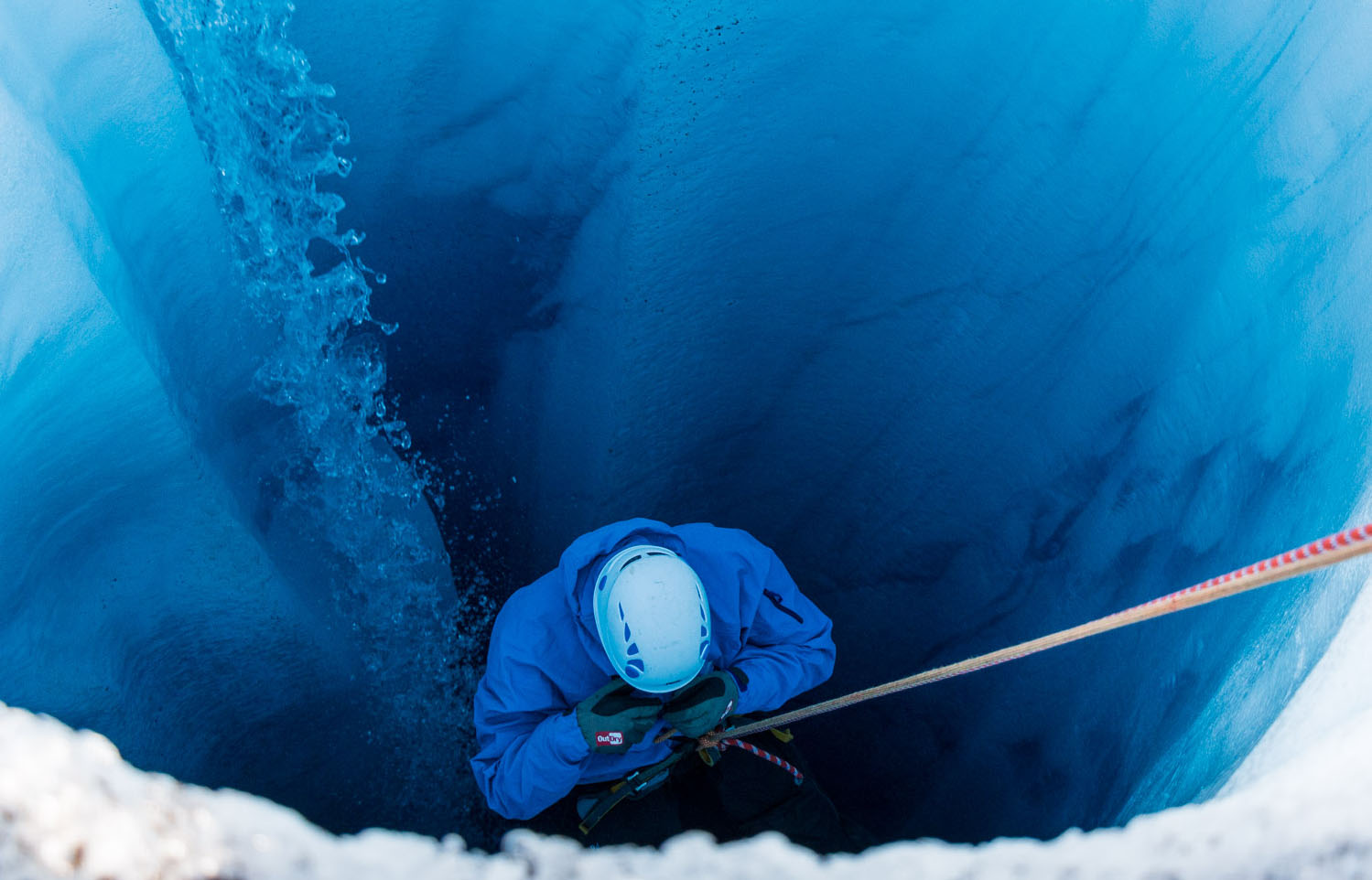Articulating the Anthropocene

In his talk, Deep time: Thin place and thick speech in the Anthropocene, writer and scholar Robert Macfarlane has taken his audience at Litteraturhuset in Oslo back 400,000 years in time: he opens with an extract from a sonification of ice data from the West Antarctic Ice Sheet.
Macfarlane observes,
– Each second of this 100-second sound piece corresponds to a thousand years of ice history data.
Macfarlane was invited to Oslo by the CAS Oslo research project After Discourse: Things, Archaeology, and Heritage in the 21st Century. His talk at Litteraturhuset was about the Anthropocene and our (in)ability to articulate its affects and effects, or even to name it satisfactorily.
Macfarlane describes the Anthropocene as the ‘proposed new epoch of geological time in which human activity is considered such a powerful influence on the environment that it is going to leave a long-term signature on the strata record’. He adds,
– It is going to be an extraordinary signature.
Macfarlane goes on to list a number of reasons for this:

– We have bored fifty million kilometres of holes in our search for oil; we remove mountain tops to get to the coal; our oceans are full of plastic; and weaponry tests have dispersed radionuclides globally, providing a distinctive stratigraphic mark that will endure billions of years in some cases.
Read also: – We are not in control of the afterlife of things
– We have become geomorphic agents of titanic and unprecedented force, and our earth legacy will be legible for thousands of years to come.
However, this new epoch is also characterized by what Macfarlane describes as ‘thick speech’:
– The Anthropocene poses substantial problems to our ability to articulate it. Words become sticky, and it is as if having an ‘ox on the tongue’.
An archive of climate data washed away
In his talk, Macfarlane shares his experiences from Greenland in summer 2016. People he interviewed talked about the speed of the glaciers melting. At one place the glaciers moved thirty-five meters a day:
– It was astonishing and frightening to be there, he says.
He struggled to articulate what he observed:
– This ancient ice carrying an archive of climate data that was washed away. I didn’t know what to do with myself. My speech felt both thin (pointless) and thick (inarticulate) at the same time.
Listen to our podcast—Glaciers retreat: The mountain is sad
– The Kantian sublime doesn’t work for the Anthropocene, and there is a need for a new word.
The ‘stuplime’ was coined by Sianne Ngai in her book Ugly Feelings (2007).

– She doesn’t make reference to the Anthropocene, but I think these ugly feelings are part of this ugly epoch.
We experience the Anthropocene often as a stun, which immobilizes us, Mcfarlane continues:
– The stuplime rather than the sublime has the sub-partitioning of encounter into smaller and smaller divisions of meeting. That is what makes for both boredom and helplessness. In the sublime, we are overpowered, but then we respond by trying to compensate for it. The sublime is a much more active effort.
The stuplime leaves us flat, which is not what the world needs right now, he says:
– The need to change seems to greatly exceed our capacity to exert it, I think.
Ngai goes on to suggest that stuplimity linguistically produces what she calls a thickening of speech, Macfarlane explains:

– She says that when we are stunned into stuplimity, we can only speak of the experience using a kind of thick language. She has fascinating things to say about the formal properties of this: it’s about stuttering, and an odd combination of hyperactivity with a lack of causal grip.
Macfarlane goes on to explain,
– We compensate for the agitation that comes from not being able to action things with a sort of hectic manner.
When Macfarlane read Ngai’s book, he recognized what had happened to him in Greenland:
– This thickening, this muddying and hesitant speech.
How can we become better at speaking about the Anthropocene?
What do we need to do in order to be better at speaking about the Anthropocene, to get ‘the ox off our tongue’? Macfarlane suggests:
– We need new media and new data forms. Visualizations by especially climate scientists brought the Anthropocene into our view in the first place.
These visualizations have become even more important with the arrival of an American president who tries to muzzle scientific utterances and control data, he says:
– This is a four-year term with a possibly 4,000-year legacy.
Read also: Where does nature end and culture begin?
Finally, as a writer, Macfarlane speaks for the power and potential of writing; he describes,
– The need for literary forms, imagery, as well as travelogue. If we can call it the travel narrative—the travel narrative has always confronted the unknown.
Karoline Kvellestad Isaksen